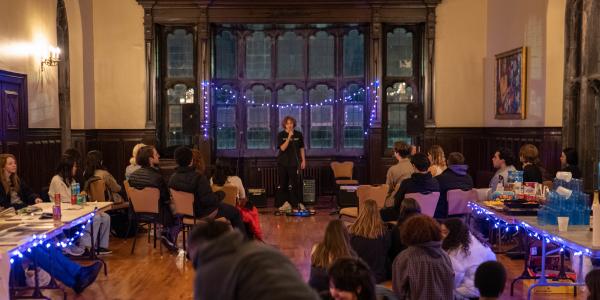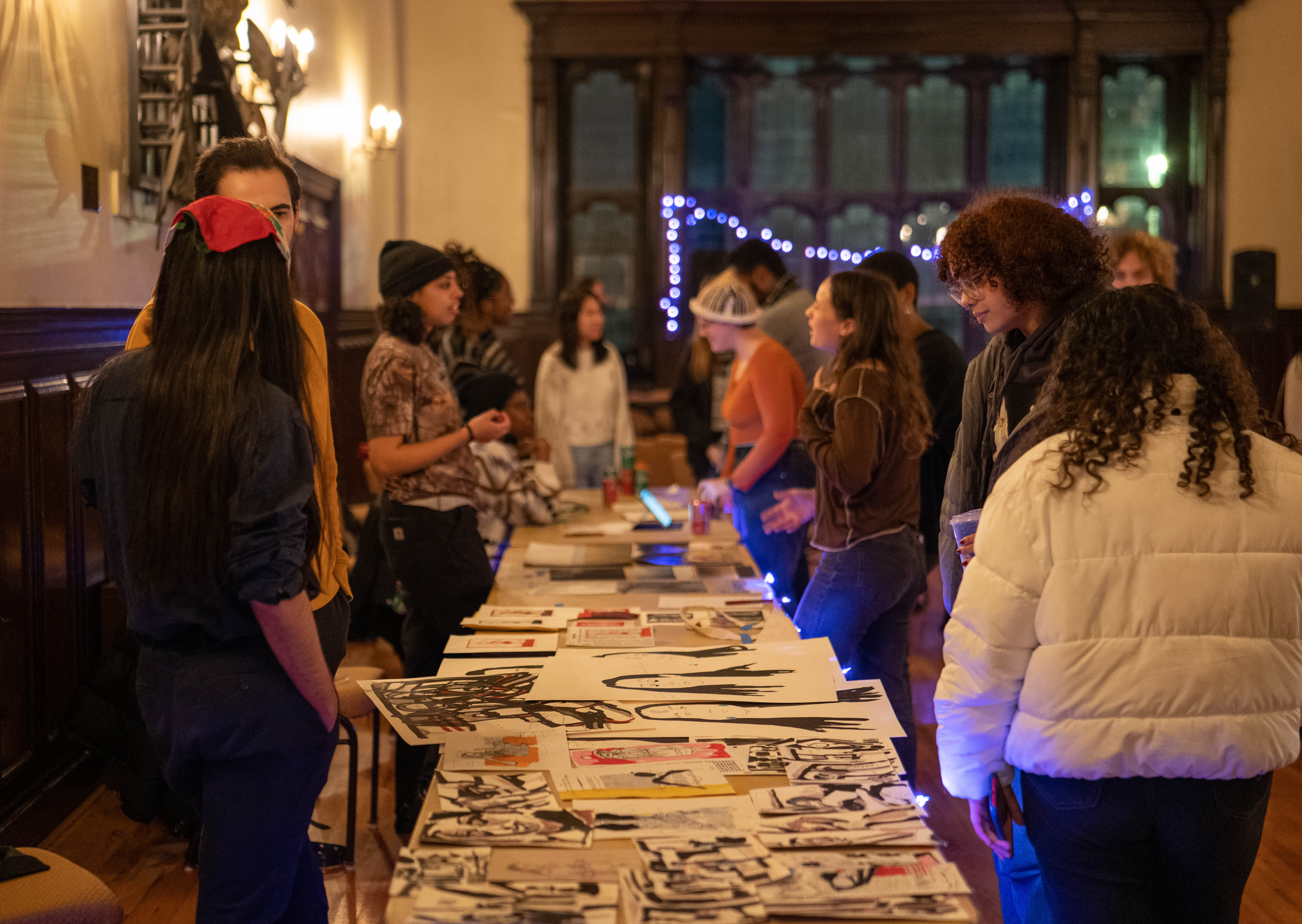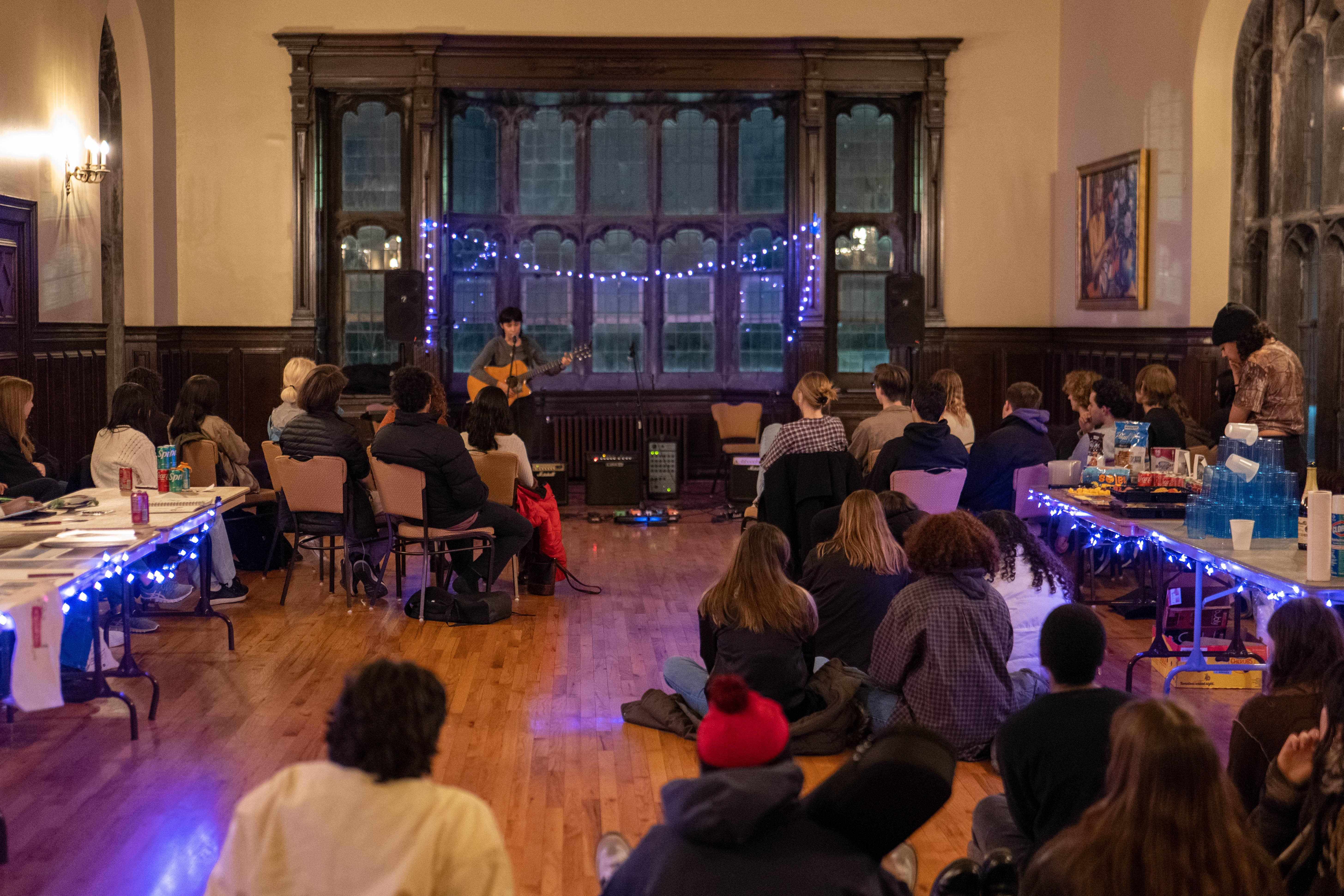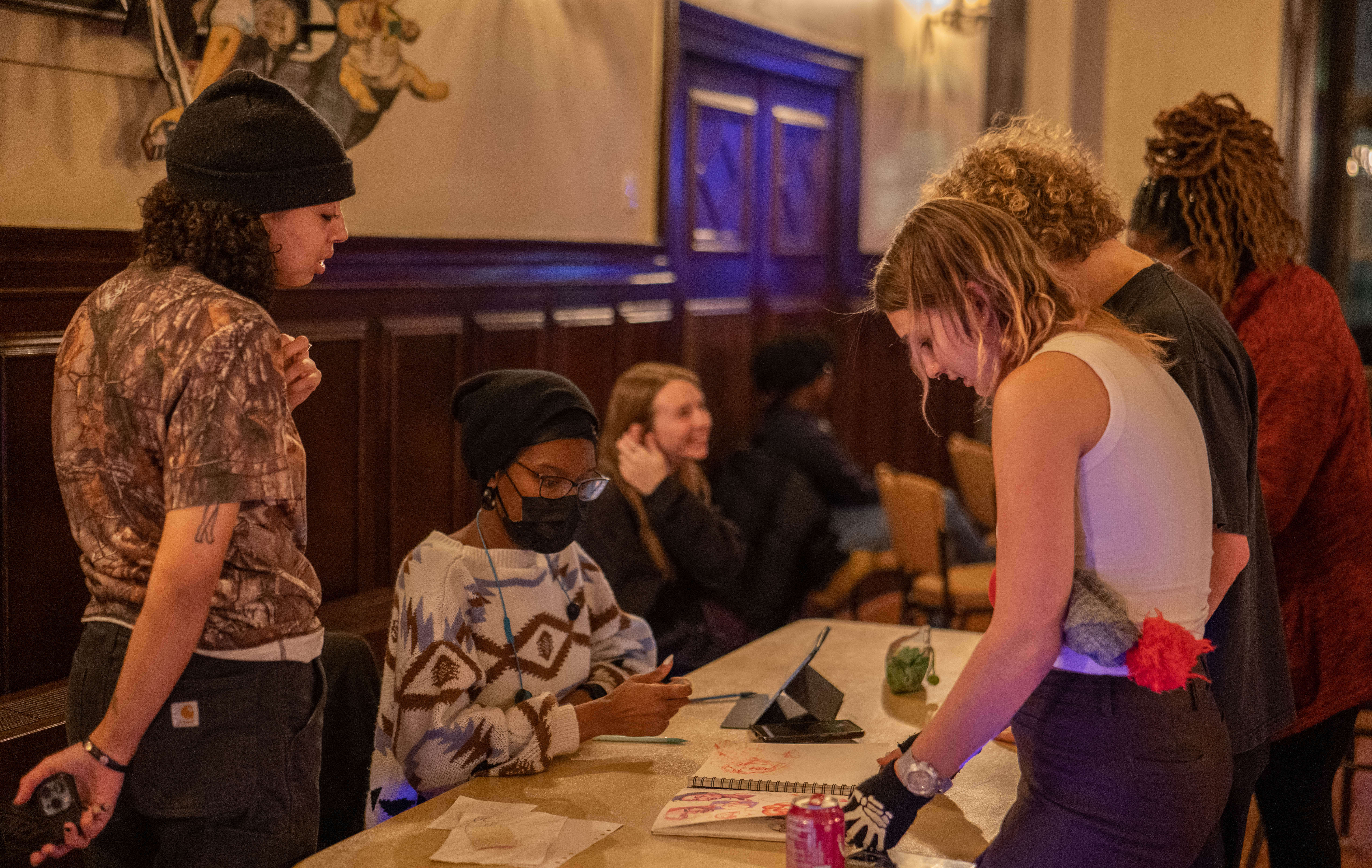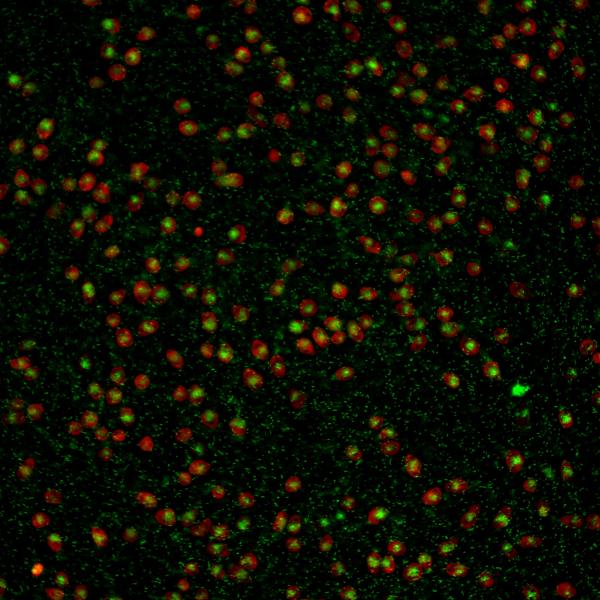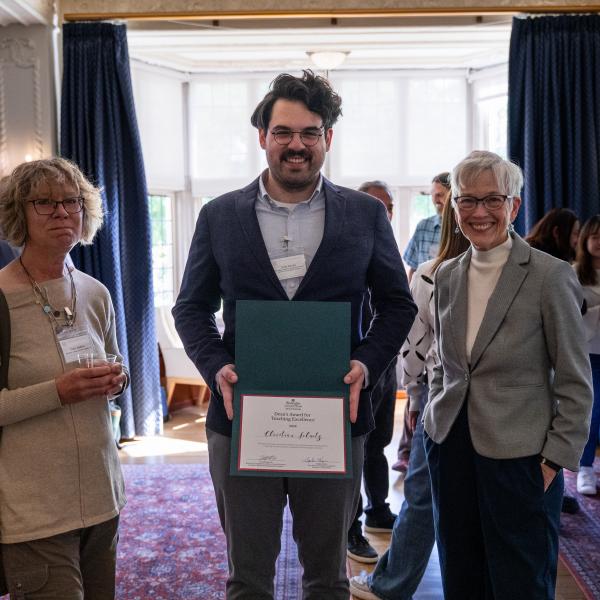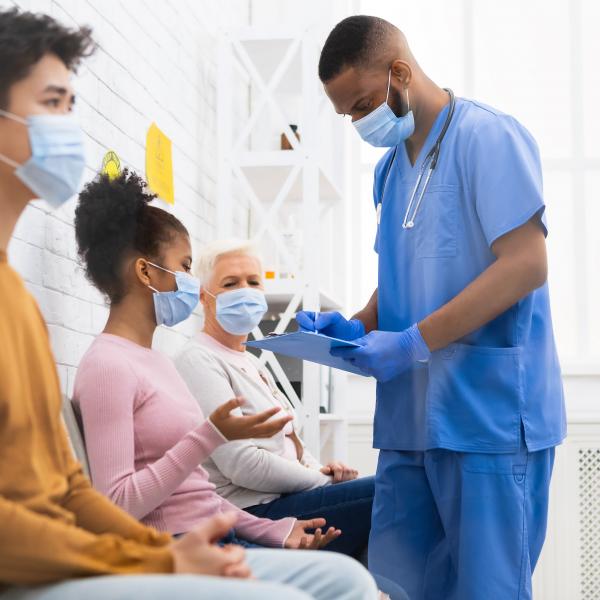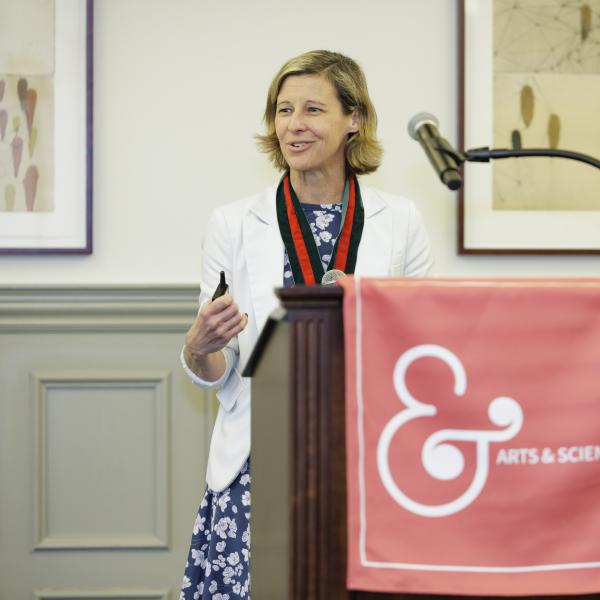Camden Dyer, AB ‘23, reflects on his years of leadership in WashU’s Taylor Stars Program (previously the Deneb STARS Program) and his work organizing the Deneb Artist Showcase.
Taylor Stars, previously known as Deneb STARS, is a cohort program available to all first-generation and limited-income (FGLI) undergraduates. As an aspirational peer mentor in the program, recent Arts & Sciences graduate Camden Dyer spent the last three years mentoring fellow FGLI students through their first years at WashU — providing academic guidance, social support, and information about available resources.
Before he graduated this spring, Dyer made one final contribution to the Deneb community by organizing the Deneb Artist Showcase. Hosted once a semester, this event brought visual and musical artists within Deneb together to share their work.
What inspired you to organize the Deneb Artist Showcase?
The first thing I noticed when I joined Deneb was that there were so many artists in the community, but many of them don’t know each other. So, my initial idea behind the showcase was for it to be a networking event.
I would love for Deneb to become more of a creative space. I don't mean just in an artistic sense, but also in terms of creating cultural change on campus. When Deneb is a group that creates with the perspectives of FGLI students, it shows that we're not defined by our socioeconomic status, but by the richness of our backgrounds.
How might FGLI students risk being defined by their socioeconomic statuses?
Because WashU is giving us more financially than other students, it can feel weird to be assertive. You think, “I'm so lucky to be here; I don’t want to mess it up.” And when you know that someone else has a lot of money, your brain can associate that with them being a bigger person, which is obviously not the reality. I think it partially comes from the way people carry themselves. It's all very internalized and systemic.
I think having more opportunities to push past those differences, to be on the same level with other people, is really important. Too often, affluent students stay together and FGLI students are unable to permeate those groups. The goal of the Deneb Artist Showcase is to help push students as a team toward other artistic communities on campus.
How have you benefited from becoming involved in communities outside of Deneb, such as KWUR?
I think that my more affluent friends in KWUR have learned a lot from me, and I've learned a lot from them. I was really happy to be a part of KWUR because I was going to music shows, playing in a band, meeting local artists, and learning about new music in my own social scene. Plus, I didn't feel like I needed to go spend $100 at a club.
Every year that I’ve been a peer mentor, my mentees have asked things like, “How are people on my floor eating out three nights in a row?” Going out can be a very cost prohibitive thing, and it’s good to know that you can have a comparable social experience without needing to spend money.
How can creating and sharing art help FGLI students feel welcome at WashU?
At WashU, you're often preparing yourself to enter the affluent, professional world. Sometimes, it can feel like you have to drop certain parts of your identity when they don’t translate into that world. Art allows you to openly express those parts of yourself.
Everyone has a valid source and inspiration for what they create. We all have compelling stories of how we got here. Events like the Deneb Artist Showcase afford a shared recognition of stories we might not have heard before.
